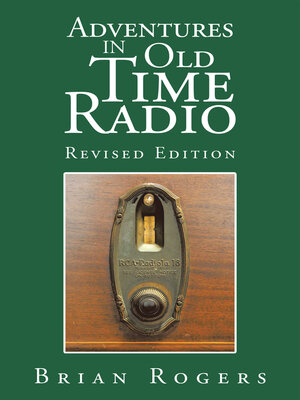
Sign up to save your library
With an OverDrive account, you can save your favorite libraries for at-a-glance information about availability. Find out more about OverDrive accounts.
Find this title in Libby, the library reading app by OverDrive.



Search for a digital library with this title
Title found at these libraries:
| Library Name | Distance |
|---|---|
| Loading... |
Before there was television, before there were computers, before there was the Internet with its audio and video streaming, before there were cell phones, iPods, and iPads, there was radio. Beginning in the early 1920s, electrical waves—mysterious to many—could be sent from senders or transmitters into boxes called radios in people's homes. Sometimes the boxes weren't boxes at all. In radio's earliest days, hobbyists built radios (called crystal sets) with wire and empty oatmeal boxes or similar materials. By 1930, radios were becoming massive pieces of wooden furniture proudly residing in living rooms. At first, the waves carried talks and music from transmitters in cities into radios nearby. But, in 1926, dependable chains or networks of radio stations were being put together with telephone wires, and people in many cities could listen to the same programs simultaneously. In the 1930s, local vocalists and other performers were being replaced on the air by network shows that informed, entertained, and enlightened. During the Great Depression, free entertainment coming over the radio helped ease evenings spent fretting over lack of employment and unpaid bills. Programs such as Fibber McGee and Molly and Jack Benny brought laughter into millions of homes. Suspense and similar shows inspired terror, and Dragnet and Your FBI in Peace and War brought mystery. As World War II neared, and all through the conflict, radio instantly brought into homes everywhere news of major and minor events. Because of radio's immediacy, we learned, the same day, when Pearl Harbor was attacked, when Allied soldiers landed in France, and when surrender agreements were signed with Germany and Japan. In his book, Brian Rogers, in a collection of articles based on material he has researched and written for various radio hobby publications, introduces some of the events and personalities that made up the golden age of radio, roughly from 1930 to 1960, and the decade preceding when radio was taking its first electronic baby steps. He also shares his personal story with old-time radio and how, with warmly glowing vacuum tubes, his own hand-me-down radio brought friends to a boy who thought he had no friends.







